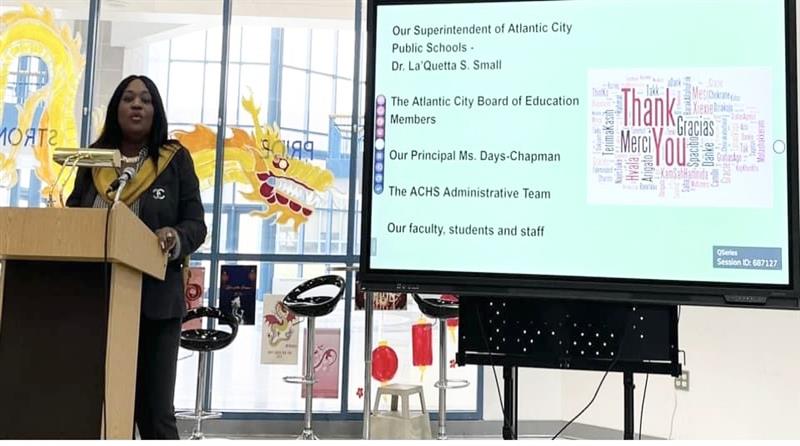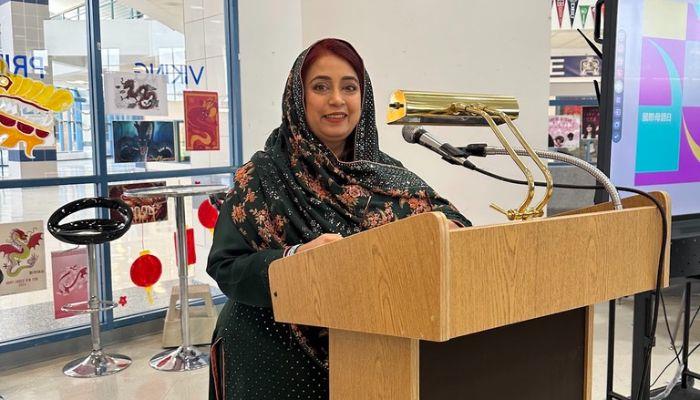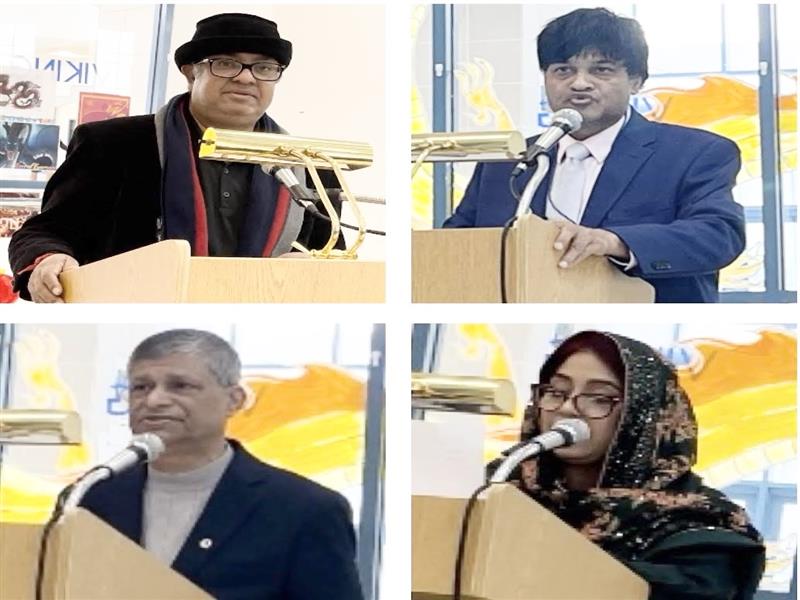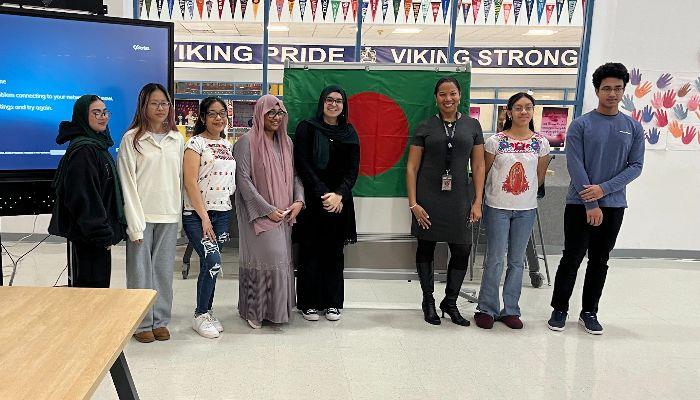Atlantic City High School Celebrates International Mother Language Day
ATLANTIC CITY — More than 100 students, faculty, staff and community members assembled in the Atlantic City High School library on Wednesday, February 21, 2024, to celebrate International Mother Language Day. "We embrace diversity and celebrate multilingual communities within our school district," said Superintendent of Schools Dr. La'Quetta S. Small. "This effort is aimed at instilling in the students of different languages their interest in their mother tongue and keeping it in their hearts."  “It doesn’t matter who you are. It doesn’t matter where you are, you should always remember your roots,” said Midhat Siddiqui, the Atlantic City High School secretary who organized the program. “You should always carry yourself in a way that lets you be who you are, no matter what country you’re in.”
“It doesn’t matter who you are. It doesn’t matter where you are, you should always remember your roots,” said Midhat Siddiqui, the Atlantic City High School secretary who organized the program. “You should always carry yourself in a way that lets you be who you are, no matter what country you’re in.”  In addition to Dr. Small, community leaders from the Bangladesh Association of South Jersey spoke of the importance of preserving native languages.
In addition to Dr. Small, community leaders from the Bangladesh Association of South Jersey spoke of the importance of preserving native languages.  Students read poems in their native languages and shared the history that resulted in the establishment of International Mother Language Day.
Students read poems in their native languages and shared the history that resulted in the establishment of International Mother Language Day.
 The General Conference of the United Nations Educational, Scientific and Cultural Organization (UNESCO) established International Mother Language Day in 1999. According to the United Nations website, the UN initiative grew from the efforts of Bangladesh.
The General Conference of the United Nations Educational, Scientific and Cultural Organization (UNESCO) established International Mother Language Day in 1999. According to the United Nations website, the UN initiative grew from the efforts of Bangladesh.
Siddiqui explained that the entire language celebration is rooted in the history of her native Bangladesh. Pakistan, India and Bangladesh were once all part of India. A war in 1947, resulted in Pakistan, as it is today, breaking away from India and becoming West Pakistan, where they spoke the Urdu language. The area now known as Bangladesh also succeeded from India and became known as East Pakistan, where they spoke Bengali. But when West Pakistan tried to force Urdu on East Pakistan, another battle ensued, resulting in the establishment of Bangladesh as its own independent nation. “The whole reason for the war was to establish their language, Bengali, as their national language,” Siddiqui said.
In Bangladesh February 21, 1952, is celebrated as the anniversary of the Bengali people fighting to preserve their language. Atlantic City Board of Education member Subrata Chowdhury said the unknown soldiers who died for their beliefs should always be acknowledged.
"Our mother tongue Bengali is appreciated in the world today because of the great sacrifices of the martyrs of the great language movement of ’52,” Chowdhury said. Based on the experience of the Bengali people, the UN acknowledges the importance of language preservation. “Multilingual and multicultural societies thrive through the preservation of their languages, which serve as conduits for traditional knowledge and cultural heritage,” the UN states on the International Mother Language Day portion of its website. “However, linguistic diversity faces increasing threats as more languages vanish. Currently, 40 % of the global population lacks access to education in their native language, a figure that exceeds 90 % in certain regions.”
The UN has also reported that every two weeks a language vanishes leaving a cultural and intellectual hole in society. “Research underscores the benefits of using a learner’s native language in education, fostering better learning outcomes, self-esteem, and critical thinking skills,” the UN States. “This approach also supports intergenerational learning and cultural preservation.”

